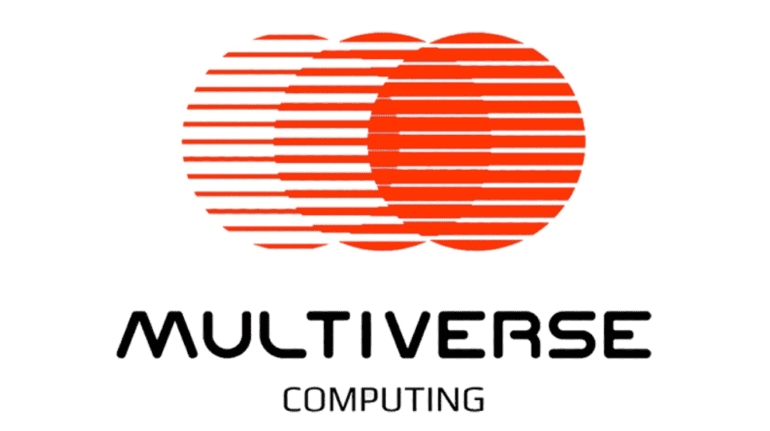- Multiverse Computing, based in San Sebastian, Spain, secured $27 million in equity funding led by Columbus Venture Partners.
- The funding, valuing the startup at $108 million, will support expansion into optimizing complex computations across various industries.
- CEO Enrique Lizaso-Olmos emphasizes “optimization” as Multiverse’s core value proposition.
- Multiverse aims to optimize computations for industries like finance, manufacturing, energy, cybersecurity, and defense with its Singularity software platform.
- The company has introduced CompactifAI, a product focusing on compressing large language models (LLMs) for AI applications.
- Multiverse claims its quantum-inspired tensor networks can compress LLMs by over 80%, potentially revolutionizing processor usage in the industry.
- Founded in 2017, Multiverse began with a scientific paper on quantum finance and has since expanded its clientele to include Moody’s Analytics, Bosch, and others.
- Investors include Quantonation Ventures, the European Innovation Council Fund, Redstone QAI Quantum Fund, and Indi Partners.
Main AI News:
The advent of physical quantum computers in the market at scale and reliability is still years away, but the momentum behind deep tech remains unwavering. High-level quantum computer science, a field that leverages quantum principles for intricate computations in domains such as finance and artificial intelligence, seems to be accelerating.
In a recent development, Multiverse Computing, a San Sebastian-based startup, has successfully raised €25 million (equivalent to $27 million) in equity funding, spearheaded by Columbus Venture Partners. This funding round has placed Multiverse’s valuation at €100 million ($108 million), earmarked primarily for two pivotal areas. The startup intends to expand its existing operations further, collaborating with startups across verticals like manufacturing and finance. Additionally, it aims to embark on fresh initiatives to closely engage with AI companies dedicated to constructing and managing large language models.
CEO Enrique Lizaso-Olmos emphasizes a singular focus across both fronts: “optimization.”
As computational complexity increases, executing computations becomes more expensive and, at times, excessively intricate. Multiverse’s flagship software platform, Singularity, poised to serve diverse industries, including finance, manufacturing, energy, cybersecurity, and defense, promises to streamline and optimize complex modeling and predictive applications more efficiently.
In the realm of AI, the emphasis shifts towards applying the platform to condense Large Language Models, marked by the introduction of a new product named CompactifAI. This innovation targets the incessant calculations involved in constructing and querying LLMs, aiming to minimize noise and accelerate processes, thereby enhancing reliability in generating results.
Multiverse asserts that its services, accessible to clients through APIs, can compress LLMs “with quantum-inspired tensor networks” by over 80%, while maintaining accuracy. If substantiated, this could significantly alter how companies procure and utilize processors, tackling a major bottleneck in the industry.
Lizaso-Olmos, with a multifaceted background spanning over three decades, initially trained as a medical doctor before delving into mathematics and computer engineering, culminating in a Ph.D. in biostatistics. Bolstering his expertise, he pursued an MBA. Through this journey, he found like-minded collaborators such as Roman Orus and Samuel Mugel, who shared an interest in quantum software and had already made significant strides in academic circles.
The genesis of Multiverse can be traced back to a whimsical discussion on a WhatsApp group in 2017. Initially conceived as a scientific paper exploring the intersection of quantum principles and finance, the project gained traction after being accepted for a conference in Toronto. Recognizing its potential, Lizaso-Olmos and his cohorts transitioned from theoretical discussions to founding Multiverse Computing, along with Alfonso Rubio.
The company’s inaugural foray into quantum and financial technology, stemming from that initial paper, served as its first commercial application, catalyzing early success. Since then, Multiverse has diversified its portfolio, attracting clients like Moody’s Analytics, Bosch, BASF, Iberdrola, Credit Agricole, and BBVA. Notably, industrial and energy clients, drawn to the sustainability benefits of more efficient computing, now constitute a significant portion of the company’s clientele.
In addition to Columbus Venture Partners, previous investor Quantonation Ventures, alongside newcomers such as the European Innovation Council Fund, Redstone QAI Quantum Fund, and Indi Partners, participated in the funding round. Javier Garcia, a partner at Columbus Venture Partners, anticipates Multiverse’s expansion into the life sciences and biotechnology markets, leveraging its exceptional team and innovative solutions.
While Multiverse’s value proposition resonates with various sectors, its aspirations to penetrate deeper into deep tech and AI realms remain to be tested. Competitors like Alphabet’s Sandbox AQ, Quantum Motion, and Classiq vie for space in this burgeoning domain.
Conclusion:
Multiverse Computing’s successful funding round underscores growing investor interest in quantum software solutions. The company’s ability to optimize computations and compress LLMs has significant implications for various industries, potentially reshaping processor usage and enhancing operational efficiency. As Multiverse expands its reach beyond finance into sectors like AI and life sciences, it stands poised to disrupt the deep tech landscape, challenging competitors like Sandbox AQ and Quantum Motion in the quantum software market.

